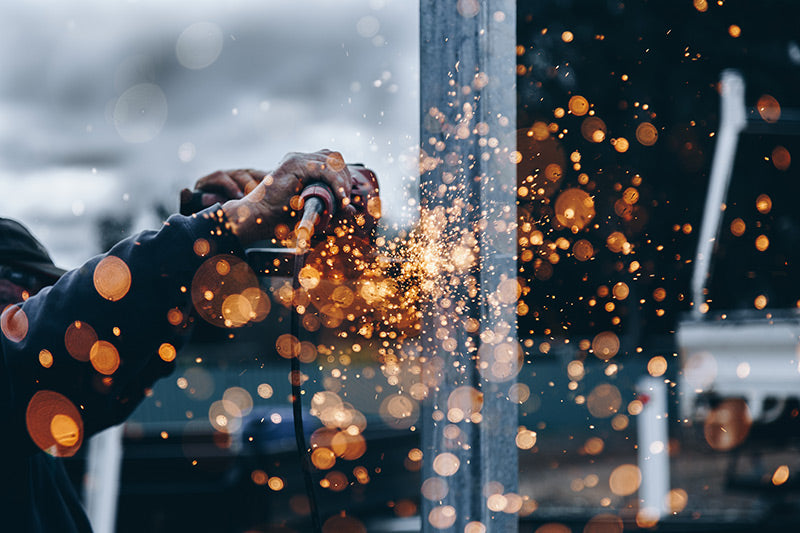Portable generators can produce enough power to keep your appliances running but as they rely on gas or fuel, you must take steps to ensure your equipment is used and stored safely.
So, how do you safely use a generator? Here are our generator safety tips…
Personal Safety:

When it comes to safety measures, prevention and planning is key when using your generator. Let’s look at some tips to ensure accidents don’t happen!
1. Only use your portable generator outside
Generators emit carbon monoxide, which can accumulate indoors and have deadly effects if you inhale for too long. DO NOT use your generator in indoors, garages, sheds, vans, cellars or below staircases – set it up OUTSIDE (approx. 20-25 feet from your house) with the exhaust pointed away from residential areas.
It should have open space on all sides and NOT be positioned near a window, door or ventilation system that may push CO2 inside a property.
2. Consider buying a carbon monoxide detector.
To avoid the dangerous build-up of carbon monoxide, purchase a detector so that you can regularly check levels.
3. Secure power cords.
When connecting appliances to your generator, don’t leave the power cords loose across walkways where people may trip and pull the plug out of the socket. In a place of business, install a warning sign around the generator and secure and cover for the cords during use.
4. Protect yourself from shocks.
If you have a permanent home backup generator installed, have a transfer switch fitted by an electrician rather than attaching your generator directly to the mains.
It’s also important to regularly check power cables for damages, twists and cuts that could cause electric shocks when touched. Use heavy-duty cords that can handle the current flowing through them.
5. Reduce the risk of fire hazards.
Don’t refuel your generator when it’s hot as a spillage of fuel on hot engine parts could cause a fire. Instead, take the time to wait for it to cool down safely. Similarly, don’t overfill a generator with fuel and be sure to clear any spilled fuel that may set alight.
Don’t smoke or light matches around the generator as fuel vapours may catch alight. Keep a fire extinguisher nearby in case a fire starts and store your fuel away from the generator.
Equipment Safety:

Generator safety precautions don’t just apply to you, but also to your generator itself. Here are a few more safety checklist ideas that will keep your generator safe and in good working condition.
6. Store your generator carefully.
Store your equipment on a level surface where it won’t roll or tip – this could damage the generator itself and fall on someone in the process.
7. Test your generator.
Read your manual fully! Rather than waiting for an emergency, test your system and make sure that it’s running correctly from the start. That way you’ll be calm when you need to operate it quickly.
If anything isn't working, take it straight back to your supplier for replacement.
8. Cover the generator.
Avoid moisture getting inside your generator during use and when it’s being stored with a protective cover. However, be sure leave a 5-foot space between the generator and any protective surfaces.
Be sure to keep it away from stagnant water which could both damage or rust the appliance or cause an electric shock.
9. Don’t overload your generator.
Be sure not to run too many appliances through your generator – at best, this could blow a fuse, and at worst, it could cause a fire.
Use our Wattage Calculator to understand how much power you would need from a portable generator and then head to our portable generators to make it a reality!
10. Maintenance is key.
Have your generator checked annually by a professional – regardless of how much it has been used. Regularly check for leaks on pipes, valves and cords and don’t leave fuel sitting in your generator for long periods of time.
Portable Generators you can trust:
For silent, portable generators you can trust – they have a 3-year warranty, after all – explore our full range of portable generators, from camping generators and catering generators to generators for events & tents.
Need some help choosing a generator? Find out all you need to know in our Generator Guides and Tips section.


